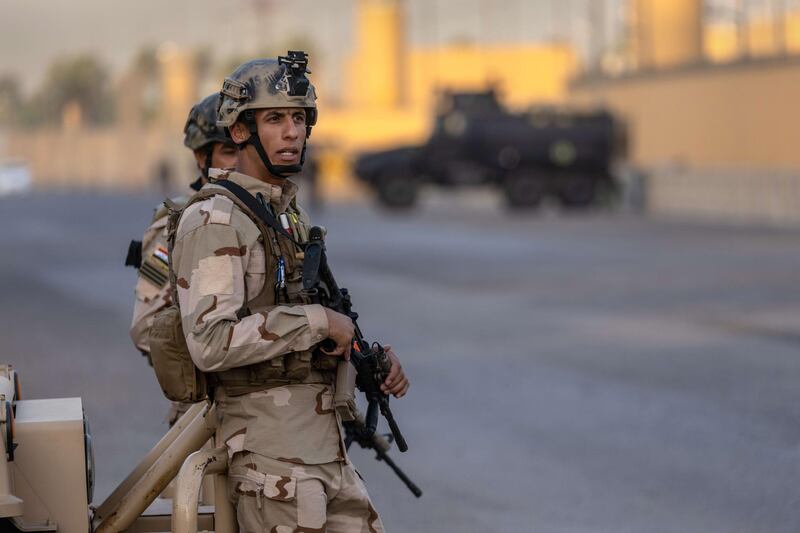ISIS renewed its threats against Sunni tribal fighters aligned with the Iraqi government as the extremist group increased its attacks, mainly in remote areas.
In an audio message broadcast late on Tuesday attributed to the group's spokesman, Abu Hamza Al Qurashi, ISIS said Sunni fighters should "not deceive yourselves that you are safe and that our swords can't reach you, but we are delaying raiding your houses in the hope you repent".
The message was issued a day after a failed assassination attempt against a prominent Sunni tribal leader who is chief of a group of fighters in southern Baghdad, police said.
Kamal Shafiq Al Jabouri was seriously wounded, but his condition is stable, police said.
In a separate attack in a remote village in the province of Diyala, east of Baghdad, at least 10 ISIS militants killed a tribal leader and his wife before demolishing their house, police said.
Clashes with Sunni tribal fighters lasted for about two hours and civilians were wounded or killed in the violence, police said.
In the audio message, Al Qurashi hailed militants in central and northern Iraq, areas from where they launch almost daily lethal attacks against security forces and government-sanctioned paramilitary troops.
In the recording, which lasts for nearly 38 minutes, he called for the release of "prisoners of atheists and apostates".
In 2014, ISIS led successful mass jailbreaks in Baghdad and Tikrit, boosting the ranks of its fighters.
But the group has since been unable to carry out similar operations.
During the peak of its power in 2014, ISIS did not restrict the apostate label to non-Muslims, applying it to practising Sunnis who did not adhere to the group's narrow world view.
Al Qurashi called on the militants to attack judges and investigators, claiming the group would offer a financial reward for anyone who "chops off the heads" of investigators.
The group overran nearly one third of Iraq and Syria between mid-2014 and late 2017.
Thousands of foreign extremists joined from around the world as ISIS established an enormous presence in both countries.
Nearly four years after declaring the group defeated, its militants are still able to regroup, move and carry out attacks, albeit in remote areas.
This poses a challenge to Iraqi security forces.
Attacks are still at historic lows, particularly in urban areas where the extremists seek influence.








